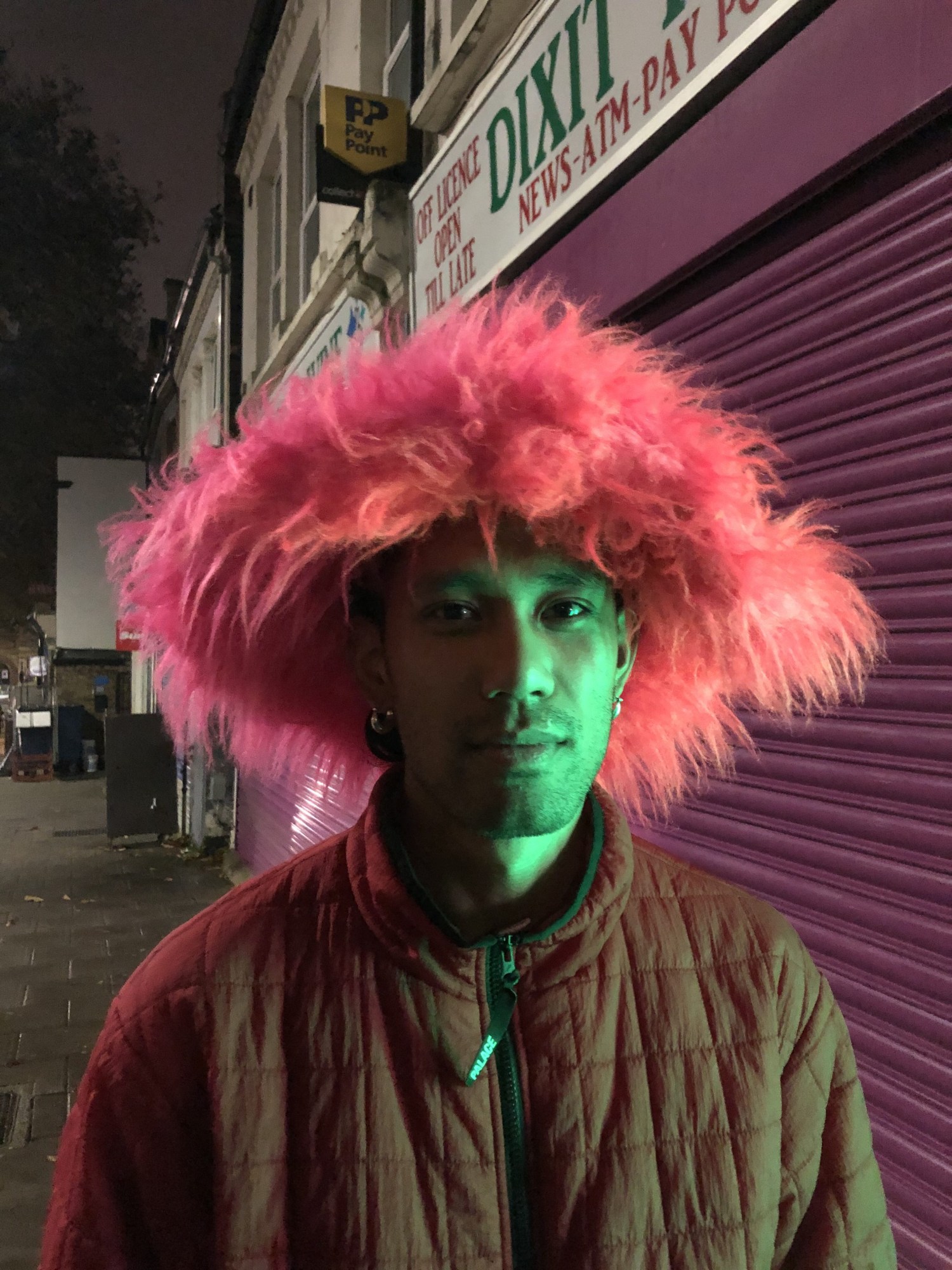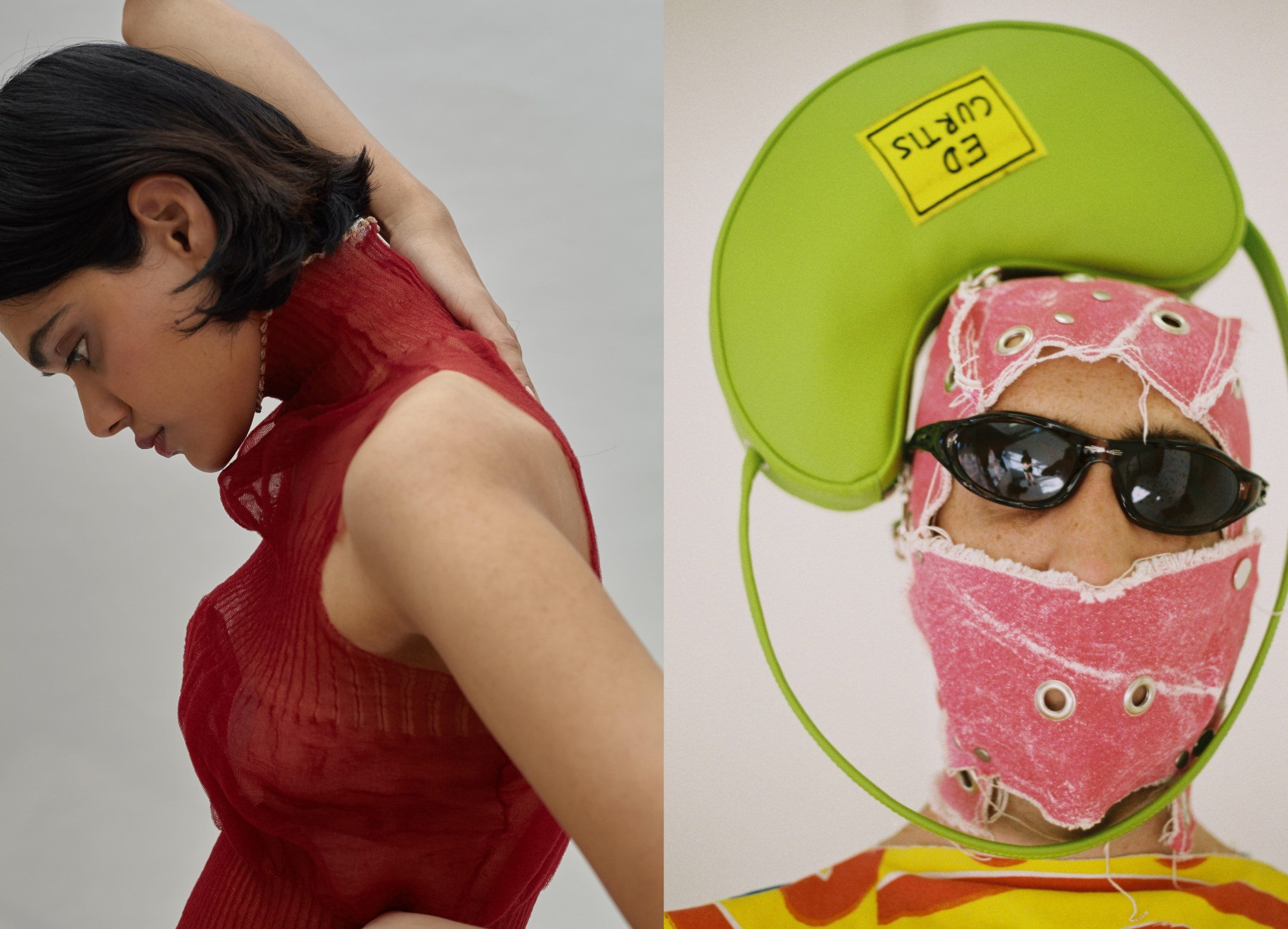Fashion is hardly known for being an easy industry to crack, a fact that rings especially true for those at its heart — the designers, without whom the whole charade would fall apart. From the outside looking in, you might assume that a combination of raw talent and educational pedigree would ensure the launch of a long, fulfilling career, but there’s a world of commercial responsibility for which many of those just entering the industry are woefully unprepared.
From the word go, young designers are expected to grapple with a whirlwind system of buyer meetings, showrooms, wholesale orders, factory sourcing, and all the rest. While the system works well for larger, already-established brands for which it’s tailored, the pressure to meet the often extreme production and sales expectations set by stores is often too much for those just starting out to handle.
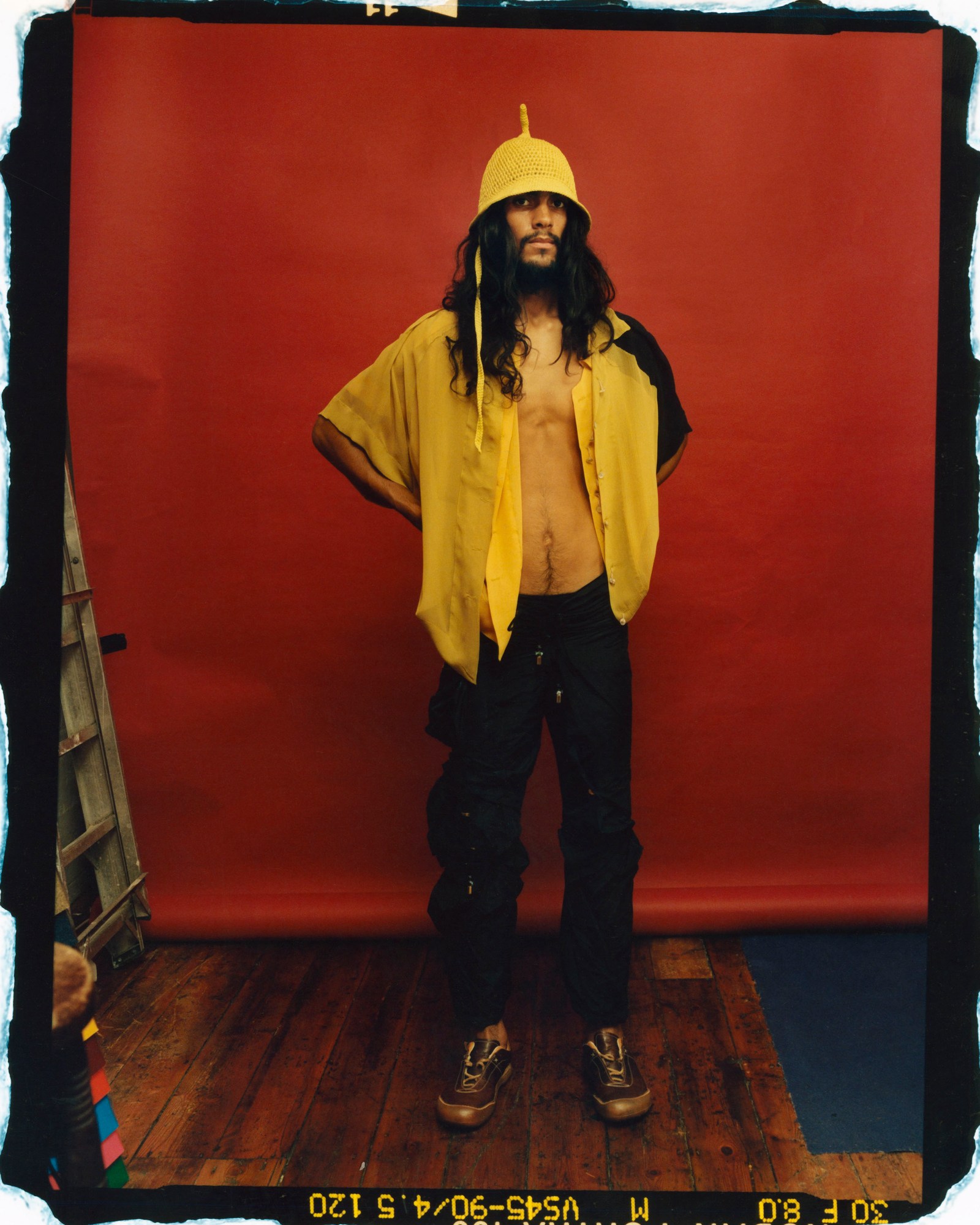
It’s a system that Tracey Suen and Jules Volleberg are eager to offer a real alternative to. Today, the new online platform they’ve been working on, APOC STORE, goes live. Its premise is a simple one, yet no less ambitious for it. Acting as a “curated marketplace for young luxury designers”, invited creatives have full control over the terms on which they sell their work. Rather than strain to align with the wholesale model, they are free to work on one-off pieces, or even produce work on a made-to-order basis, allowing them to take full charge of their growing businesses into their own hands. It’s “kind of like a luxury, creative version of Depop.”
It helps that they’ve managed to enlist some of the most exciting young talents out there, including Ed Curtis, Bethany Williams, and recent CSM MA graduates Jawara Alleyne and Leeann Huang. For many of them, APOC STORE provides the first opportunity for them to offer their work to fans that have been pined after it on social media for some time.
i-D caught up with Tracey and Jules to learn more about the pioneering fashion platform.
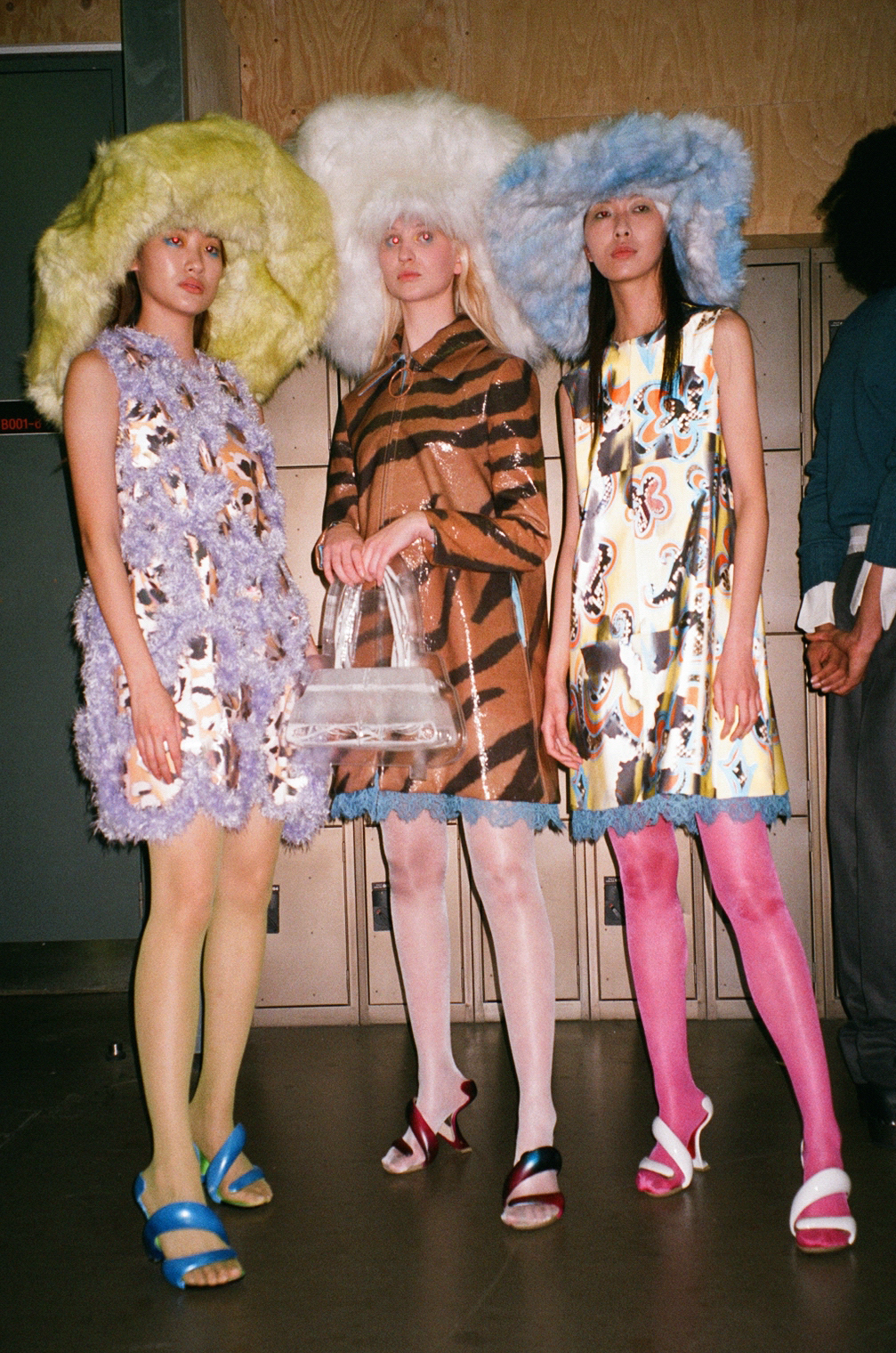
How did the idea for this platform first come about? And what’s behind the name, APOC STORE?
Tracey Suen: Everything really happened during lockdown. Both Jules and I had time to reevaluate everything, and the timing felt right with everything that’s happening in the fashion industry, but also politically in the world. This felt like the right time to start something, and also support and pave the way for a new generation of designers and artists.
Jules Volleberg: When we started speaking to designers, just approaching them about the idea in general, so many said that they were actually looking for different ways of working. We’ve always felt that some industry systems are a bit outdated and weren’t properly catering to young designers.
Tracey: Exactly, you often hear horror stories of young designers’ interactions with big retailers. Orders are made, and then if everything’s not sold then the responsibilities are put back on the designer, and everything’s sent back, which can be really damaging. When retailers do wholesale, they do big numbers and often there’s lots of dead stock, which is incredibly wasteful. So we do encourage our designers to work on a pre-order or made-to-order basis, to start with at least. And then as they grow with the platform, and they know what demand there is, they can work towards that.
When we were coming up with the name, we were thinking about what our designers were about and everything going on. It comes from the words ‘anthropocene’ and ‘epoch’. We really felt like that kind of embodied everything that we were doing.
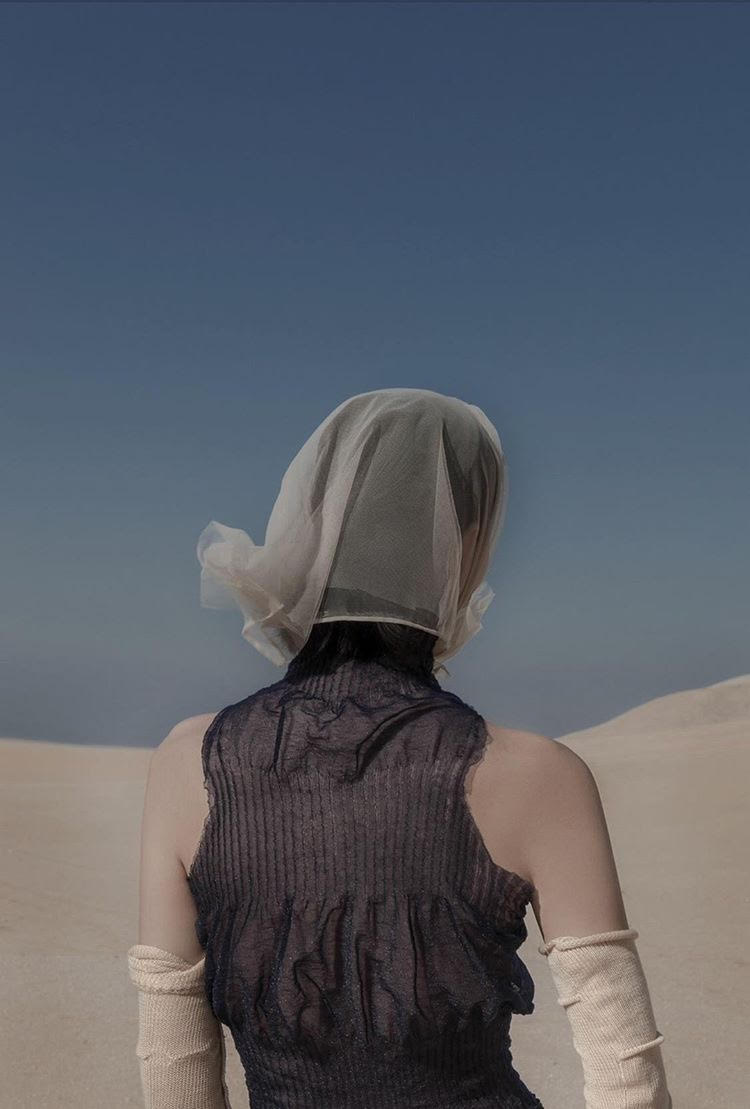
It’s clear that you’re catering to a market of conscious consumers — but what exactly does conscious consumption in fashion look like to you? And how does APOC try to facilitate that?
Tracey: Inevitably, fashion can never really be fully sustainable — its nature is to create things. Obviously, there are lots of designers, like Duran Lantink for example, who are upcycling, giving discarded garments a new lease of life by reimagining them and selling them on. And then there are other designers who are more sustainable in their processes or materials. For us, it’s about encouraging this and supporting designers that have decided to make this a priority of theirs, or at least show that they’re moving forward in this respect.
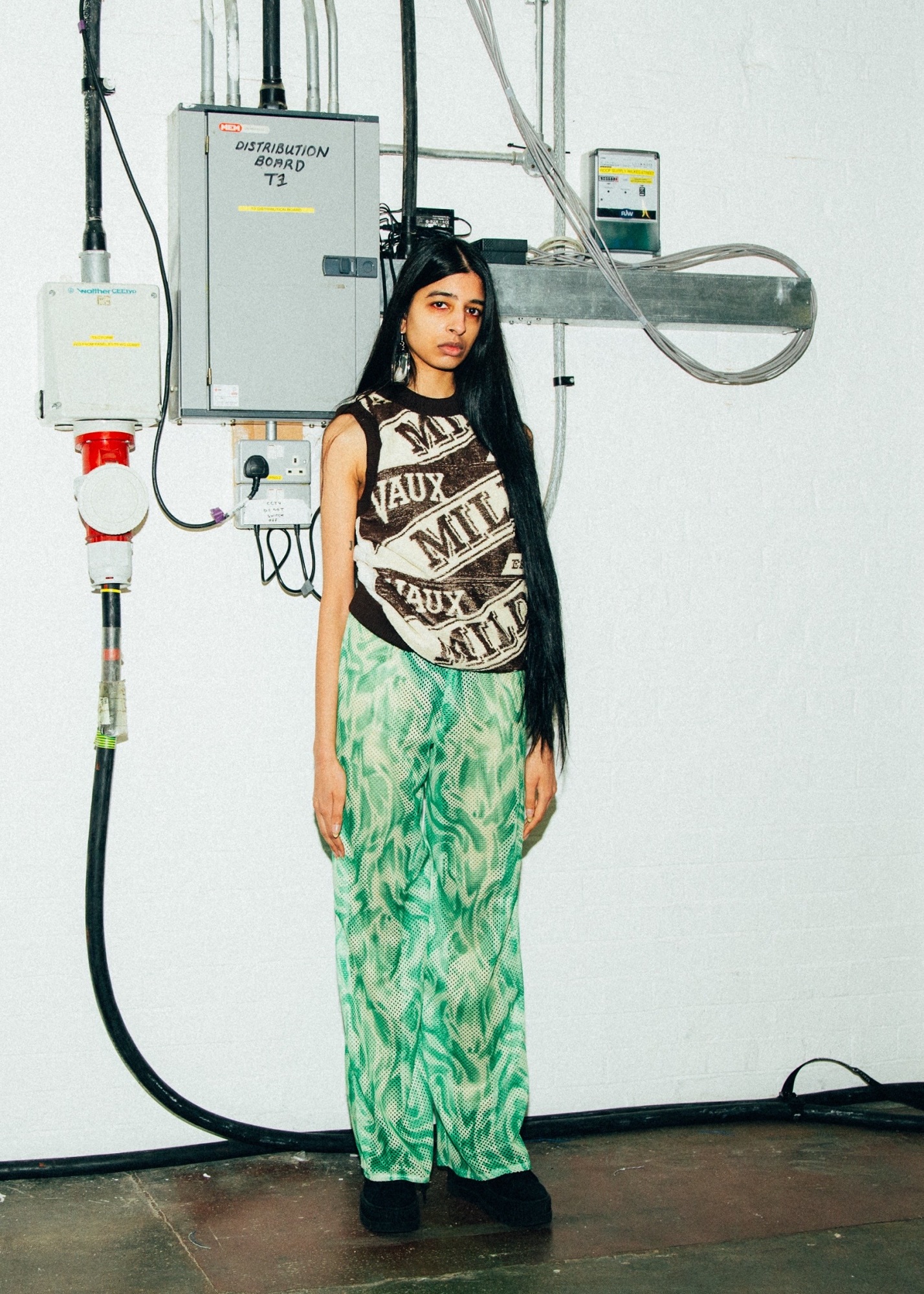
What does being part of the platform look like from a designer’s perspective?
Jules: With all our designers, we approach it on a case-by-case basis. Usually, we start by asking if they have anything available or any materials they can work with. Or, if not, if they want to work on a pre-order or made-to-order basis — we try to keep it flexible as possible.
Tracey: Because we’re reaching out to designers at different levels, everyone is in a very unique situation — they all have different resources, different capacities, and it’s really about supporting them all. We speak to so many designers who have told us that the wholesale model is relentless, that they’re incredibly tired and they’re not sure it’s worth it. Obviously it works for a few, but it doesn’t work for everyone. We want to break those barriers and find a more supportive way to keep the industry diverse, so the platform is for them to use as they wish.
That sounds like a really pioneering model for designers just starting out, but what can you offer those who are slightly more established?
Jules: One thing is that wholesalers often tend to make more commercial selections. We also want to be a platform where designers can express themselves creatively, without any commercial restrictions, which is part of the reason why we work with one-off pieces.
Tracey: And it’s really about creating a network between the designers, too. There’s power in numbers and unity, and I think that big retailers don’t really try and create a sense of community. I think for a lot of designers, the fashion industry can be quite lonely and, more and more, we’re looking for connection. I think that a platform like ours offers benefits beyond the purely financial.
